- Learning time
- 40 minutes
- First play time
- 120 minutes
Battle for Rokugan
Designed by: Molly Glover,Tom Jolly
In Battle for Rokugan you are competing daimyos, fighting to control the territories of a mythical land. And it really is a fight: brutal, cunning, and downright vicious.
The board shows Rokugan itself, broken into many provinces, which join together to form territories. Each player controls a clan and at the start of the game takes control of their own home province, plus a few others. Control tokens are placed to show ownership. But only one clan can occupy each province, and it’s this ownership that the game is all about. In each round – there are five – players take combat tokens into their hand, which will be used to attack foreign provinces, or defend their own. Combat tokens will either have number value or a special ability (sometimes both) and are made up of mostly army for land attacks/defence, but also some navy and specialists such as the shinobi, raid, diplomacy or blessing. More on those shortly…
In turn order, players place their combat tokens face-down on the map: pointing across a border to signal an attack (from a province they control) or pointing at the interior to denote defence. Each border only has room for one combat token, so if someone is already attacking you across a particular border, your plan to attack them via the same route is forced on hold! After all tokens are placed, they are then revealed and resolved: the defender’s strength compared to the attackers, and the greater number wins (- defenders win ties) claiming, or keeping, the province in question. If an attacker wins, the opponent’s control token is kicked out and they place their own there instead: new land! But if the defender wins, they get to add another control token and flip it over: giving them +1 defence against future attacks, and +1 point at the end of the game…
This back-and-to of concealed-then-revealed aggression forms the heart of the game, but there’s some other dastardly stuff going on too. First of all, there’s those special tokens: Shinobi are much more flexible in attack and can pop up anywhere. Blessings are a way of boosting power to an attacking or defending force. Diplomacy can bring peace to a province, preventing attacks into or out of it, and Raids are the most destructive of all, razing a province to the ground and making it worthless. Everyone has a bluffing token that is available in every round (all other tokens get discarded) and shrewd use of the bluff can distract the enemy from your real plans and entice them to defend a province unnecessarily…. Control of a territory at the end of a round gets you a card with a special power, and use of these can be critical!
Finally, each clan has slightly different sets of combat tokens and individual powers, so each clan plays to its own strengths with marginally different strategies. After the final round, players total their score by counting up the value of provinces they control, with considerable bonuses for controlling a territory and completing their secret objective: each player starts with one, and they are only revealed during scoring.
The guru's verdict
-
Take That!
Take That!
Exceedingly high. It's possible to be wiped off the map, and any player going into an early lead can expect some painful retribution.
-
Fidget Factor!
Fidget Factor!
Moderate: although the options on the board are numerous, you only place a set amount of combat tokens each turn.
-
Brain Burn!
Brain Burn!
Aggressive or defensive? Bluff or show of strength? Spread far and wide with guerrilla tactics, or try to gather provinces together into a marginally-more-protected huddle? Rokugan hands you the reins to a fight on wheels, hurtling through the dark and hoping the whole thing isn't going to fall apart under your feet: it's a game where half the battle is having some sense of control over your destiny - and the other is trying to read what everyone else is up to.
-
Again Again!
Again Again!
There's a lot of variety here - different clans, random draw of tokens, different strategies to explore... revisits are rewarded by different experiences, and hopefully scores settled too.

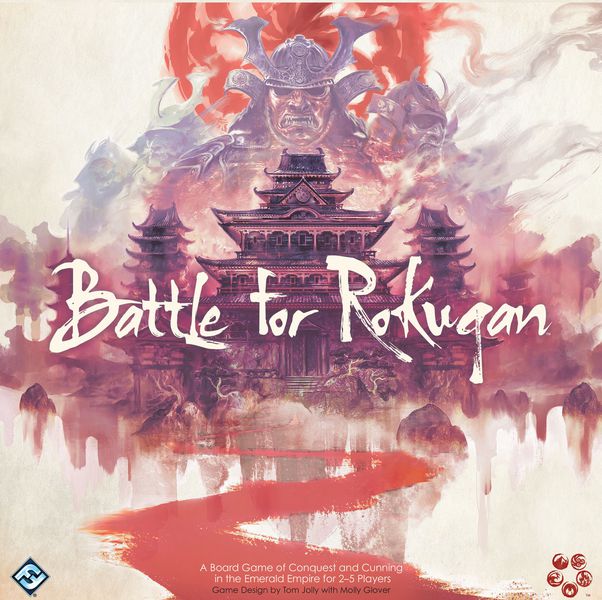
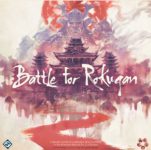
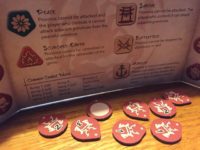
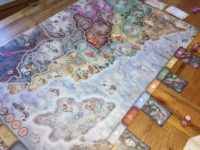
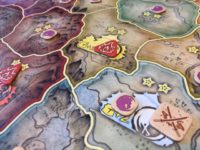


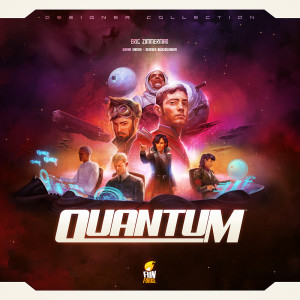
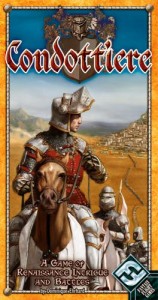
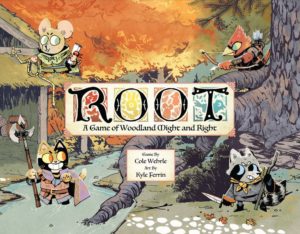
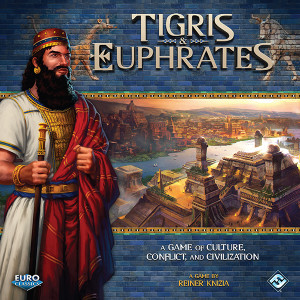
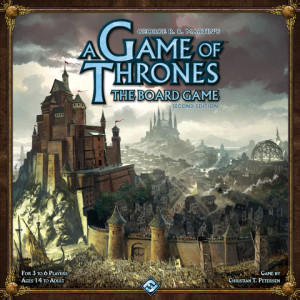
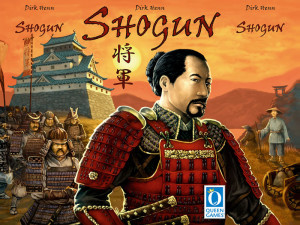
Sam says
Sometimes what I look for in a game is a gentle experience with minimal interaction; the puzzles of Cottage Garden, say, or the laidback perambulation along the road to Tokaido. But if I'm in the mood for a nasty, slash and burn bunfight then I might reach for this. Battle for Rokugan takes the simple fight for control and stirs in some extra stuff that seamlessly enriches the experience. Oodles of games have a dynamic where the default is X but you can break the rules with Y, Z, or a number or other factors. At times it can all feel a bit mechanical - but in Rokugan the additional elements work really well - mainly, I think, because of the fact that almost every combat token (- Blessings being the exception) is laid face-down before the big reveal. You really need to work out what others are up to, whilst hopefully fooling them at the same time, and that makes every round a delicious blend of anticipation followed by agony/ecstasy as things go perfectly/terribly. Combined with the random drawing of combat tokens, that means it's not an experience where you ever have total control over your destiny, and in fact there's probably more luck at play here (an underwhelming token draw, a series of unlucky guesses) than many would like - but in Rokugan that uncertainty kind of is the game: a table-reading, bluff-heavy battle for dominance.